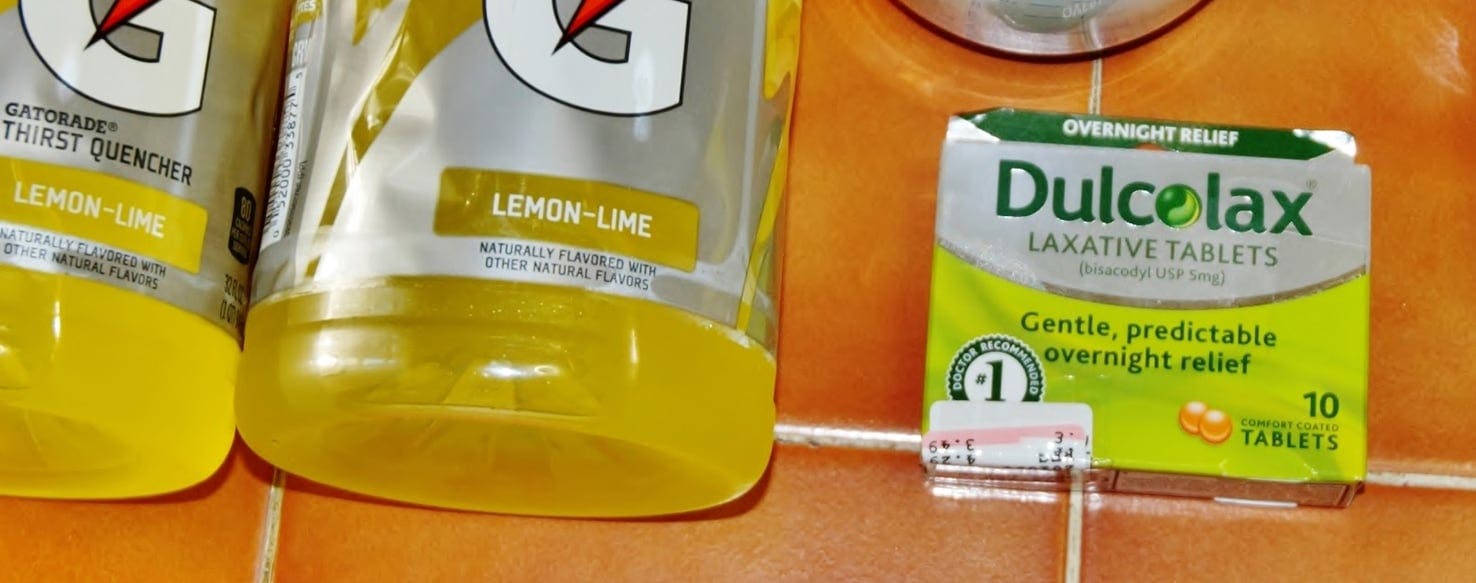
By Darlene Stott
Published: 08/23/2017, edited: 09/07/2022
Avoid expensive vet visits
Get peace of mind from the comfort of your home
Chat with a veterinary professional directly in the Wag! app
Return with more questions any time, any day
If you have ever had a constipated dog, you understand how uncomfortable your little guy can be. When our dogs are constipated, they know they have to go, and they let us know by visiting outside over and over. Maybe you have watched your dog walk around your backyard, perform their little circle dance, get comfortable in their stance only to strain and strain while pushing with no results. Constipation is not fun, nor is it comfortable. If you would like to help your dog with the pain and discomfort associated with constipation, bisacodyl, commonly known as Dulcolax®, could be a remedy to use at home.
Understanding the drug, Dulcolax
Bisacodyl is found under various brands for the relief of constipation in humans. Dulcolax® is one of those well-known name brands. There are other brands known for human consumption, however, there are no veterinary formulas with the same active ingredient specifically for dogs. Bisacodyl is a laxative for treating constipation. As a stimulant laxative, these medications stimulate movement within the bowels to relieve constipation and the discomfort stemming from the condition.
Side effects
Most veterinarians will recommend bisacodyl, otherwise known as Dulcolax®, for home use for temporary relief of constipation. If your dog has an allergy or is sensitive to this drug, it should not be used. Dogs with obstructions in their gastrointestinal tract, tears within their intestinal walls, or rectal bleeding should not use bisacodyl. If your dog is on other medications for other medical conditions, please consult with your veterinarian to ensure there are no drug interactions. Understanding your dog’s signs and symptoms and keeping a close eye on your dog after administering bisacodyl will be imperative, as your dog may experience cramping and nausea and potentially even diarrhea after taking this medication.
Alternatives
If your dog is not facing chronic constipation and is only dealing with occasional discomfort from constipation, you may look into a natural fiber to add to your dog's diet. You do not want your dog to become compacted by not gaining relief sooner rather than later. However, offering your dog foods such as pumpkin may help move things along, making your dog more comfortable. If your dog has constipation more often than an occasional day or two, be sure they have access to and are drinking plenty of water throughout the day.
You can add supplements to your dog's diet every day or supply them with temporary relief for the occasional bouts of constipation by using canned dog foods to increase their moisture and liquid intake, or canned pumpkin to provide fiber. Milk, which can serve as a laxative for dogs within a few hours, or digestible oils such as olive oil added to their dog food can help coat the intestines, easing their bowels.
You can add supplements to your dog's diet every day or supply them with temporary relief for the occasional bouts of constipation by using canned dog foods to increase their moisture and liquid intake, or canned pumpkin to provide fiber. Milk, which can serve as a laxative for dogs within a few hours, or digestible oils such as olive oil added to their dog food can help coat the intestines, easing their bowels.
Know when to call your vet
As with any at-home remedy, if your dog is sick and not feeling well, check with your veterinarian first before administering any medication. Overall, Dulcolax® and the active ingredient of bisacodyl is safe for your dog for the occasional moments of constipation. A comfortable dog is a happy dog, and a happy dog is what you want within your home.
Insuring your dog as soon as “pawssible” is essential for preventing high vet care costs. Start comparing insurance plans from leading insurers like Healthy Paws and Embrace and save over $270 a year.
You may also like
